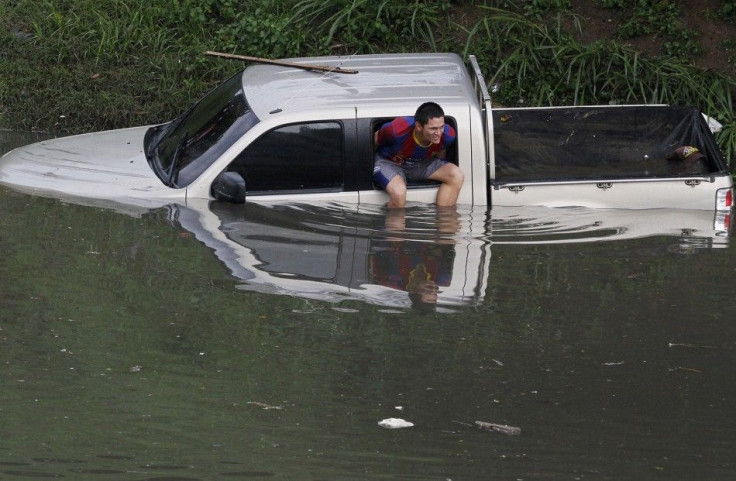Cyclone Lusi Claims 3 Lives, Intensifies Towards New Zealand, Residents Told to Stay Indoors

Tropical Cyclone Lusi has claimed three lives in Vanuatu as it continued to intensify to a category three system as it treks towards New Zealand. Kiwis at the upper and central North Island are being advised to stay indoors as well as to prepare an emergency survival kit and household emergency plan for the incoming adverse weather.
The three deaths in Vanuatu were a man in Pentecost, a boy in Santo and a woman in Malekula. At least 40,000 others were also affected.
An ABC report said many coastal and low-lying communities have been submerged in floods. Houses and evacuations centres have likewise been damaged. There were also reports of groundwater sources getting contaminated because of the damaged water systems by Cyclone Lusi.
New Zealand Transport Agency advised motorists driving conditions this weekend will be difficult due to the heavy rain and strong winds, and that it would be best to just stay indoors.
"It is a going to be a dangerous and difficult weekend for travel, and people will need to plan carefully for safe travel," Kathryn Musgrave, the agency's National Journey Manager, said.
Dan Corbett, MetService meteorologist, cautioned residents in Christchurch to be extra wary of the storm conditions.
Read: New Zealand Advised to Brace for Strengthening Tropical Cyclone Lusi
"The ground is already very saturated. It doesn't take as much rain to cause problems there as ... if the ground was parched bone dry," he said.
"They'll get into a time of persistent rain over eastern parts of the South Island. We've already had discussions with the council because of all the flooding in the last week or so.''
Mr Corbett added many places will experience severe weather and gales. "The whole system just spreads down across the country through the day on Saturday and Sunday.''
If people must drive to the conditions, Ms Musgrave said they must reduce driving speeds below the legal limit as well as increase following distances. "Vehicles need two to three times more stopping distance in wet weather."
"People should always expect the unexpected, especially if they are travelling at night on country roads where there is minimal lighting. New Zealand has a number of remote areas with difficult topography and winding roads, and these journeys become even more challenging when bad weather hits. We ask drivers to watch their speeds on corners, and remain vigilant for slips, debris and the higher risk of vehicles losing control in these conditions," she said.





















